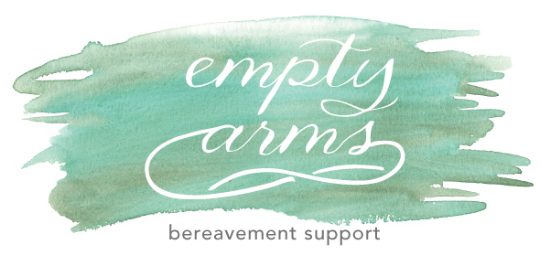By Sarah Nichols
We recently held Empty Arms’ first day-long retreat with ten parents gathering at our offices in Florence for a day of writing, community, and crafting. Jess also led a lovely session of gentle yoga, using an amended version of Joan Halifax’s guided meditation on grief. It was absolutely magic to gather together! Here we’ve shared some of the writing prompts we used– we invite you to write to any of these that moves you, and welcome you to share any part of what you write in the comments!
Prompt #1
In her book Vertical Interrogation of Strangers, Bhanu Kapil writes:
“From January 12, 1992, to June 4, 1996, I traveled in India, England, and the United States, interviewing Indian women of diverse ages and background. Originally, my question to them was, ‘Is it possible for you to say the thing you have never been able to say, not even to the one you have spent your whole life loving?’
Over the course of the last four years I asked these women—strangers I met in theaters, forests, Laundromats, temples, and diners—to respond more specifically to one or more of a predetermined selection of twelve questions. They agreed, on the condition of anonymity, to submit a spoken (tape-recorded) or written response in thirty minutes. My aim was to ensure an honest and swift text, uncensored by guilt or the desire to construct an impressive, publishable finish.”
We gather today to write in this same spirit—with the urgency and depth of shared company, setting aside of perfectionism in the name of writing what feels most true for us today. We will take the next twenty-five minutes to write towards a selection of Bhanu’s prompts. Feel free to write to all of the questions, one of them, or none at all if you have a question of your own making in mind.
“Who are you and whom do you love?
What is the shape of your body?
What do you remember about the earth?
What are you waiting, or what are you wanting, to be asked?”
Prompt #2
Letter writing is one of the most intimate forms of address. In a letter, we can say what we might otherwise be reluctant to voice aloud, or what must cross a great span of distance to reach the recipient. The act of writing a letter can be a threading or line of rope between you and the recipient, a pulling in or towards. Or, a lit match in the dark where you wish their voice could answer in response.
Write a letter— to the addressee of your choosing. Since we have gathered together as Empty Arms community members, you may wish to focus your letter on your loss. This can look all kinds of different ways. Here are just a few possibilities for whom you may write to:
To your baby
To a nurse or doctor who was there with you, what you’re grateful to them for, what was particularly comforting about their care, or about the ways their actions angered, disappointed, or deeply hurt you.
To your partner or dear friend, what they said or did that stuck with you, the ways your paths of grief ran parallel, and the ways they diverged. An offering of the truths and stories you have forged together and alone.
To your younger self, about what has happened since, the ways you’ve healed, changed, and the places that are still tender. What you’d want to tell her, if you could. The ways you carry her with you.
Prompt #3
In her book It’s Ok That You’re Not Ok, Megan Devine writes about what tending to her grief has looked like since her partner’s untimely death. She offers several writing prompts— some are short, like the seedlings of prompts here:
“Today, my grief feels like…
I wish I knew…
Kindness to, and patience with, myself could look like…”
And a longer prompt here:
Imagine Recovery (p.176)
“There are many ways to craft an image of your own recovery. To get started, you might write your responses to these questions:
1. Given that what I’ve lost cannot be restored, given that what was taken cannot be returned, what would healing look like?
2. If I step outside cultural norms of “rising above loss,” what would living this well look like?
3. How will I care for myself?
4. What kind of person do I want to be, for myself, and for others?”

